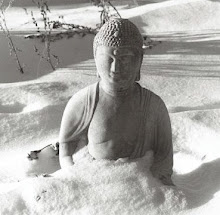
Zen is sometimes equated with philosophy, but the two are very different. The former is "thinking about thinking," according to the Oxford Dictionary of Philosophy, and the latter is a path beyond words and silence. Accordingly, philosophy texts and Zen Buddhist texts differ in at least one fundamental way. Philosophy texts seek to say something new in the usual way while Zen Buddhist texts seek to say the usual in a new way. Put another way, a philosopher's task is to refute or complicate previous understanding through the use of logic while a Zen student's task is to allow body and mind to drop away and see with Buddha's eyes and hear with Buddha's ears--to experience directly what her teacher and the many thousands of ancestral teachers, monks, nuns, and lay practitioners over the past 2500 years have realized, and make it her own.


